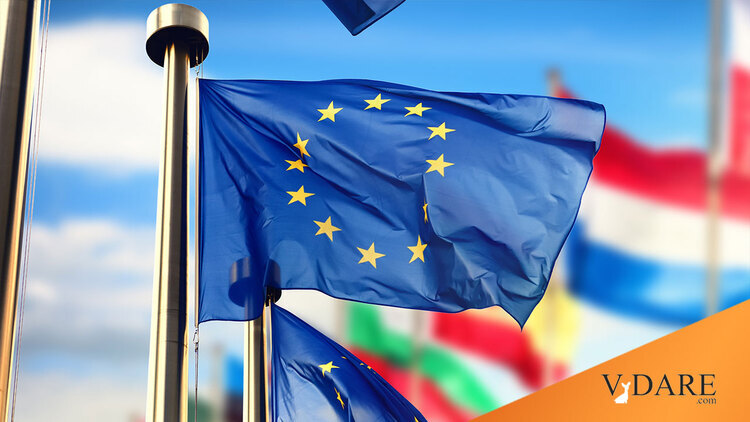
By Steve Sailer
03/30/2024
From the Washington Post news section:
Once wary of extremist violence, Europe now fears extremism in politics
By Kate Brady and Karla Adam
March 29, 2024 at 6:00 a.m. EDTBERLIN — For years, discussions of extremism across Europe were about Islamic extremism and terrorism, but the debate has now shifted to extreme-right ideologies, with governments saying they need to be regulated to protect their democracies.
The issue is arguably most vivid in Germany, where calls for a ban of the far-right Alternative for Germany (AfD) — the country’s second-most-popular political party — are growing and the government wants to cut off funding sources of right-wing extremist networks. In Britain, the government wants to keep extremists from meeting with lawmakers or receiving public funds, and it plans to publish a new list of groups it considers “extremist,” focusing more on beliefs rather than a propensity for violence.
The debate over extremism has come a long way from the early 2000s and the terrorist attacks in the United States and Britain. As recently as 2015, then-Prime Minister David Cameron declared that “the fight against Islamist extremism is, I believe, one of the great struggles of our generation.”
The threat now is less about extremists planting bombs and carrying out violent attacks than about undemocratic ideology spreading through society.
It seems like the big threat to Our Democracy is democratic elections?
“There’s been a change of emphasis since the early 2000s. It’s much broader now. It’s about thinking about what we want public discourse to be about, rather than focusing on any specific threat,” said Rod Dacombe, a politics expert at King’s College London.
Maybe in a democracy, public discourse should instead be about what the public wants it to be about than about what politics experts prefer?
He noted that in Britain, more people with far-right views than with extreme Islamist ideologies are being referred to Prevent and Channel, the government’s signature counter-extremism programs.
… The country’s domestic intelligence service has put the AfD party under surveillance after classifying it as a “suspected case of far-right extremism.” The AfD, which is polling higher than any of the three parties making up the ruling coalition, is appealing the classification.
What’s more democratic than the secret police putting a popular political party under surveillance?
If the evidence collected by the intelligence service indicates that the party is “confirmed extremist,” it could bolster efforts to ban it — a risky process that would take several years.
… In recent years, many European countries have seen a rise in support for far-right parties, and analysts are predicting a sharp right turn at the upcoming European Parliament elections in June, in which 400 million people in the European Union can vote.
What more malignant threat to democracy could there be than voters voting?
Joseph Downing, an expert in security at the London School of Economics, said that across Europe, voters increasingly feel like they aren’t represented by mainstream parties, a sentiment that groups such as the AfD in Germany or the National Front in France “really exploit.”
We can see how horrifying that is by looking at Denmark, where the mainstream parties responded to the growing popularity of immigration restrictionist parties by… becoming more immigration restrictionist themselves. Thus, the current prime minister of Denmark is an immigration restrictionist Social Democrat.
But that’s not the point. As we all know, the point of democracy is not to enact the will of the people, like the Danes have, it’s to let in more immigrants.
… In Britain, meanwhile, views on immigration that were once the sole province of the far right have been adopted by the Conservative Party and made mainstream. Downing said that for years there was a “kind of gentlemen’s agreement that the government wouldn’t politicize immigration,” which “clearly broke down during the 2016 Brexit referendum.”
What’s more democratic than elites agreeing amongst themselves to not allow voters to be given a choice on a major policy question?
Seriously, these kinds of articles would be less comic if they simply admitted that the quoted experts were, obviously, anti-democratic. It’s not unreasonable to argue against democracy. Lots of bright people from Plato onward have been anti-democratic. But it is derisible for people who more or less support rule by putative philosopher-kings to pretend to be the defenders of democracy.
This is a content archive of VDARE.com, which Letitia James forced off of the Internet using lawfare.